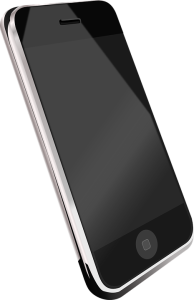
Not a head, but a computer: US regulator allowed Elon Musk’s Neuralink to test brain neuroimplants in humans
The future of human-machine integration took a significant leap forward recently as the US regulator granted permission to Elon Musk’s Neuralink to conduct human trials of its brain neuroimplants. This groundbreaking decision opens doors to a new era of technology and holds immense promise for the advancement of medical science.
Neuralink, a neurotechnology company founded by Elon Musk, aims to develop high-bandwidth brain-machine interfaces (BMIs) that can establish a direct connection between the human brain and computers. This cutting-edge technology has the potential to revolutionize the way we interact with machines, enabling seamless communication and enhancing our cognitive abilities.
The regulatory approval from the US Food and Drug Administration (FDA) allows Neuralink to move forward with clinical trials involving human participants. The trials will involve the implantation of tiny, thread-like electrodes into the brains of individuals, with the goal of testing the safety and efficacy of the neuroimplants.
These flexible electrodes, thinner than a human hair, will be implanted into specific regions of the brain to record and stimulate neural activity. The data collected from these electrodes will be transmitted wirelessly to an external device, providing valuable insights into brain function and offering the potential for precise control over various applications.
The implications of this development are vast. Neuralink’s neuroimplants could have transformative effects in the field of medical science, offering hope for individuals with neurological disorders such as Parkinson’s disease, epilepsy, or spinal cord injuries. By directly interfacing with the brain, Neuralink’s technology may enable the restoration of motor functions, the alleviation of chronic pain, or even the restoration of sight and hearing.
Beyond medical applications, the integration of human minds with machines holds tremendous potential in fields such as artificial intelligence and virtual reality. The ability to directly interface with computers could revolutionize the way we interact with technology, making it more intuitive and seamless. Tasks that currently require physical input devices could be performed effortlessly through neural commands, ushering in a new era of human-machine collaboration.
However, this groundbreaking technology also raises ethical concerns. The potential for enhancing human cognition and augmenting capabilities could lead to societal inequalities, creating a divide between those who can afford such enhancements and those who cannot. Additionally, the security and privacy of neural data will be paramount, as unauthorized access to brain activity could have far-reaching consequences.
As Neuralink moves forward with human trials, the focus will be on ensuring the safety and efficacy of the neuroimplants. Rigorous testing protocols, ethical considerations, and regulatory oversight will be crucial in the development and deployment of this technology.
Elon Musk’s Neuralink and its pursuit of human-machine integration are emblematic of the remarkable progress made in the field of neuroscience and neurotechnology. While the road ahead is paved with challenges and uncertainties, the potential benefits of this technology are undeniable. As we venture further into the realm of human-machine symbiosis, we must navigate these uncharted territories with caution, ensuring that the pursuit of scientific advancement goes hand in hand with ethical considerations and societal well-being.

